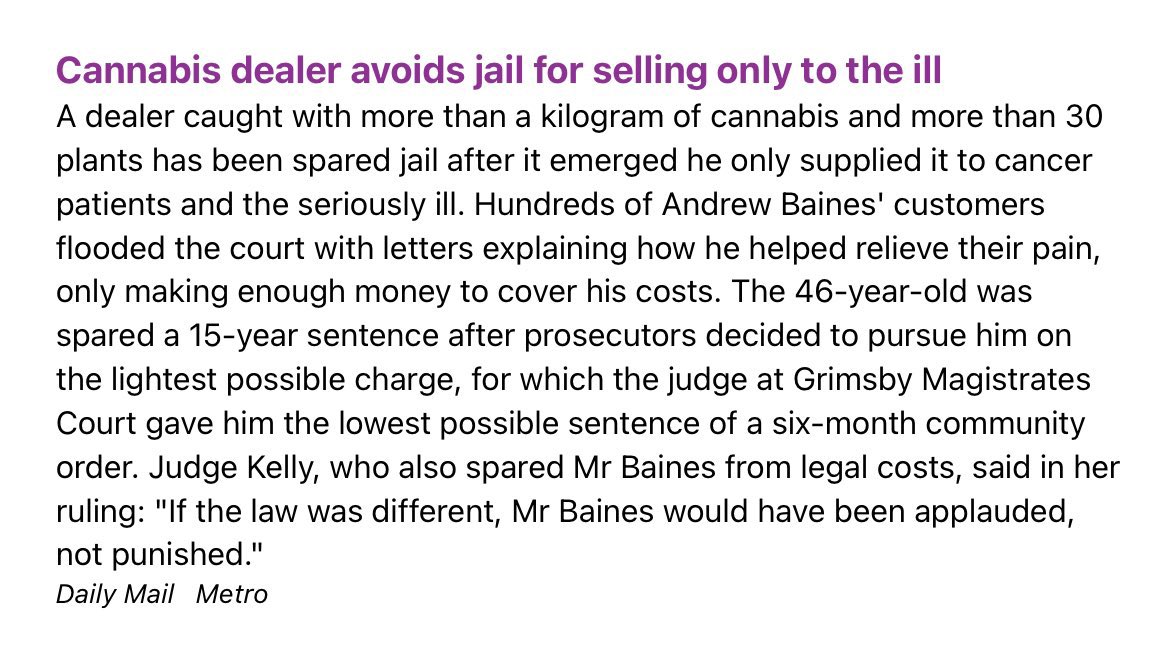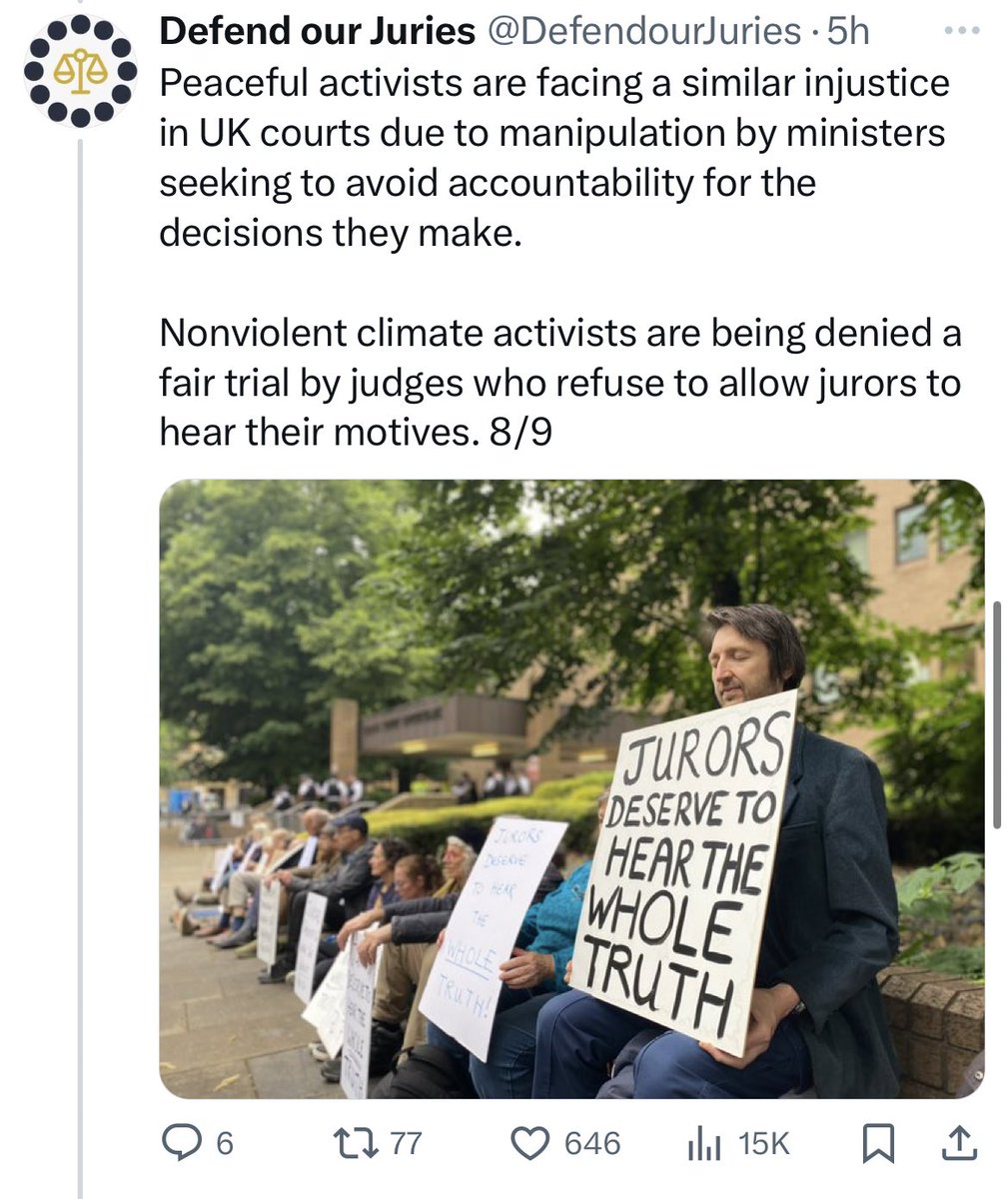As people have asked (and you only have yourselves to blame)…
1. The precise charge isn’t reported, which is a huge error for reasons we’ll get to. But in any event, whatever the charge, there is no criminal offence in existence that carries a maximum sentence of 15 years.
1. The precise charge isn’t reported, which is a huge error for reasons we’ll get to. But in any event, whatever the charge, there is no criminal offence in existence that carries a maximum sentence of 15 years.
https://twitter.com/barristersecret/status/1533030536993771520

2. “Prosecutors decided to pursue him on the lightest possible charge”. That charge is not specified. Presumably that means he was charged with possession of a controlled drug of Class B, rather than possession with intent to supply or production/cultivation of cannabis. But… 

3. …if he was indeed charged with simple possession of cannabis, the Sentencing Guideline provides a starting point of a fine, and a range as low as a discharge (no action taken). So this doesn’t square with a community order being “the lowest possible sentence”. 



4. Further light/confusion is shed when you read the report in the Independent. For instance, that curious comment by the judge suggesting the Defendant would have been “applauded” if the law were different? It wasn’t the judge. independent.co.uk/news/uk/home-n… 



5. Although the Grimsby Telegraph, which carries a similar correction, has the name of the judge as “Sue Fortune”, rather than the Independent’s “Geraldine Kelly”. So who knows who said what. grimsbytelegraph.co.uk/news/grimsby-n… 



6. The Independent appears to be the proud source of this story, boasting the “exclusive”. It also believes that a 6-month community order handed down by Grimsby magistrates’ court amounts to a “landmark ruling”, in what may be news to the Court of Appeal and UK Supreme Court. 

7. In fairness to the reporter, their enthusiasm might have been fuelled by the comments attributed to the defence representative. I’ll be corrected by others, but in my experience there is nothing remotely unusual about a 6-month community order. I’ve seen scores. 

8. Of course, in all three news reports, nobody bothers to report what charges the defendant actually faced. Which is really quite vital if your hook is “the CPS pursued a really low charge and the judge passed a really low sentence in this unusual case.” 

9. And finally, kudos to Grimsby Telegraph for imbuing the Crown Prosecution Service with the power to *sentence* defendants.
Even when charges are *not pursued*. 🤯
(N.B. The Independent did *not* make this error, contrary to what is asserted below)
Even when charges are *not pursued*. 🤯
(N.B. The Independent did *not* make this error, contrary to what is asserted below)

10. So there you have it. An absolute trifle of #FakeLaw and abominable journalism.
The cause, it seems, is that no qualified court reporter was actually in court to hear what happened.
This is a huge problem. Local court reporters are the lifeblood of democracy. We need them.
The cause, it seems, is that no qualified court reporter was actually in court to hear what happened.
This is a huge problem. Local court reporters are the lifeblood of democracy. We need them.
11. Good local court reporters ensure that the public know what is happening in their justice system. They hold power to account. They preserve open justice.
But they, like local journalism as a whole, are endangered.
Without them, as this story shows, we are in trouble.
But they, like local journalism as a whole, are endangered.
Without them, as this story shows, we are in trouble.
P.S. Thanks to @legalstyleblog for this correction. I’d overlooked that in 2019 the government abandoned centuries of convention regarding maximum sentences and introduced 15 years (previous highest increments were 14 years and life) as the maximum for certain terrorism offences.
https://twitter.com/legalstyleblog/status/1533136854215802881
• • •
Missing some Tweet in this thread? You can try to
force a refresh









